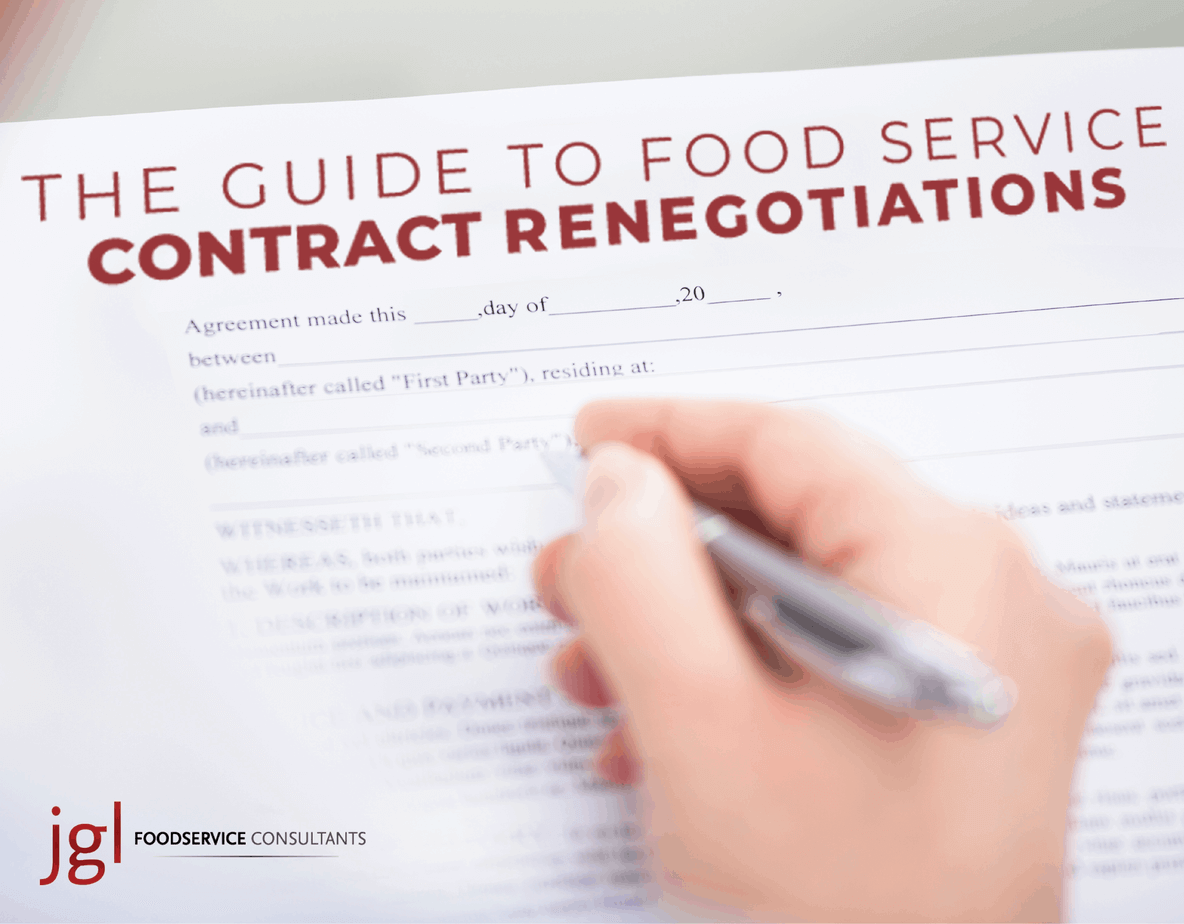When we are hired to develop a food service operation for a museum restaurant, corporate café, or any other cultural institution, we often encounter a time where it is necessary to renegotiate original contracts that our clients have signed. This process can be overwhelming, but with our teams 35 years of experience, we are skilled with assisting in any renegotiation that comes to fruition. Here’s a few tips to keep in mind when it comes to the renegotiation process and how our team can help your institution along the way.
Starting a Food Service Contract Renegotiation
Many food service vendors seek to insert a contract clause regarding their right to renegotiate if economic conditions change. As JGL clients know, we always argue against that. The fact is, if a vendor is suffering financially, they will approach their client to renegotiate regardless of whether the right exists. The pandemic and resulting financial distress have proved that in spades. Currently, at JGL Foodservice Consultants, we are receiving calls weekly from clients and others asking for advice on food service contract renegotiation. While we can’t address all possible scenarios, here are a few of the main situations we’ve encountered.
The Types of Contract Renegotiations
P&L Contract – Simple Term Extension
For a P&L contract, a simple term extension can allow the vendor more time to earn profits. Assuming the vendor is well aligned, that may be an easy fix.
P&L Contract – Deferral
In a P&L contract, if the vendor is obligated to fund upcoming capital expenditures or percentage-based funds, solutions have included deferral, defrayment, or short-term elimination of these requirements.
P&L Contracts with Flat Rent – Reduction
For a P&L contract with minimums or flat rent, we have seen reductions, deferrals, and eliminations of part or all minimums or rent.
Management Fee Contracts
For management fee contracts, we have seen reductions and elimination of management or administration fees for a prescribed period.
Much like P&L environments, we have also seen the elimination or deferral of capital expenditures or contributions to funds such as marketing, equipment repair, and maintenance or utilities in management fee contracts.
For all contracts, changes to the required service levels can provide immediate relief; think about the number of outlets, required operating hours, and service methods.
It may be worth considering whether the use of or conversion to a ghost kitchen could be of help.
The Keys to a Successful Renegotiation
The key to a successful renegotiation is for both parties to address their pain points and detail solutions that would assist. While food service vendors have suffered financially, so too have their clients, and neither party should be bearing the brunt of the pain.
A larger multinational food service company will likely have different concerns than a smaller local entity. We know of several contracts that have terminated over failed renegotiation efforts. While this might indicate the relationship was not worth saving, consider the time and effort necessary to identify a replacement. If a renegotiation is considered, make sure the parties document in writing the length of any remediation, the trigger point for when they revert, and the measurement methodology for such trigger points. And if you find yourself stuck, give JGL a call. We are always happy to guide clients and non-clients alike.

